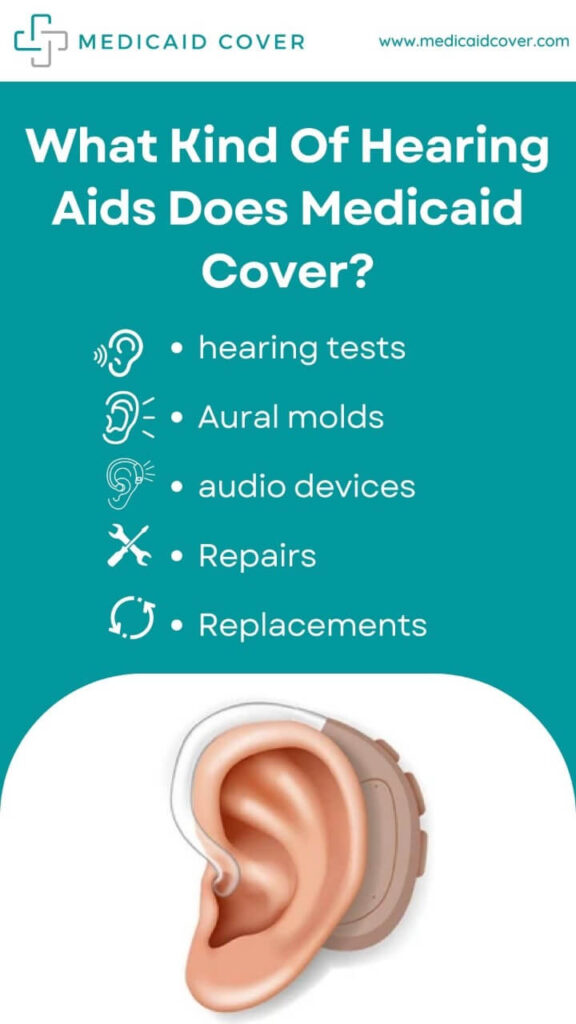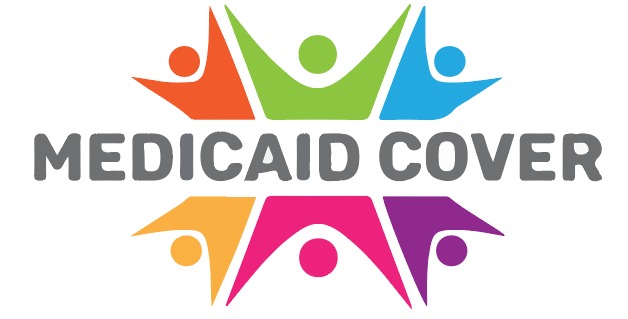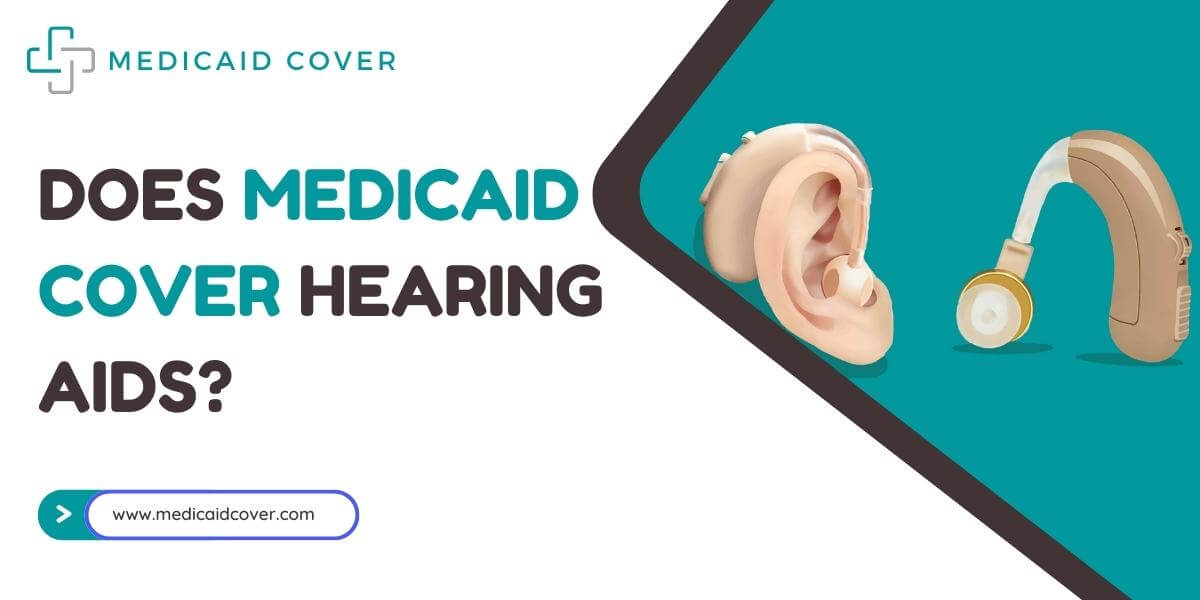The hearing aid is the most common issue we have seen in people recently; many reasons lead to a severe hearing aid, especially in children and adults.
Many health policies help to cure significant health diseases, and Medicaid is one of them, but at the same time, the confusion is whether Medicaid covers hearing aids or not. If yes, then how much and what’s included in it?
Read more to know more!
Recently we have suffered the global pandemic, which led to various health outcomes. Its complications, weakness in the eyes, excessive weight changes, and dental issues were the most common health problems in the post-pandemic arena.
But is that so? The pandemic is the foremost period that many of us, especially children and adults, face.
Excessive use of gadgets was the main reason for such health diseases. Extreme usage of Mobile phones, laptops, and TV is the main reason for the damage to sense organs, especially hearing aids. Here you can read also Does Medicaid Cover Vision?
What Is A Hearing Aid?
An inconspicuous electronic gadget worn behind and in the ear is a hearing aid. It amplifies some sounds to make it easier for someone with hearing loss to listen, communicate, and engage in daily activities.
Hearing aid users can hear better in both quiet and noisy settings. However, the number of people who could benefit from wearing a hearing aid is just about one in five.
There are three components that make up a hearing aid a microphone, an amplifier, and a speaker.
A piece of microphone equipment in the hearing aid picks up sound, transforms it into electrical impulses, and then transmits signals to an amplifier. The amplifier gives the signs with more strength before being transferred to the ear via a speaker.
Common Causes Of Hearing Loss
The common reasons for hearing loss are aging, ear injury, and heredity.
The National Institute on Deafness & Other Communication Disorders estimates that one in eight Americans suffer from hearing loss in both ears. However, the three most prevalent types of hearing loss are.
According to the Centers for Disease Control and Prevention, 1.7 out of every 1,000 infants who have their hearing tested will have a hearing problem.
The frequent cause of hearing loss in infants and young children is genetic. Age-related hearing loss affects 8.5% of adults between 55 and 64, and it grows more prevalent as people get older. Knowing the most frequent causes of hearing loss might help you seek treatment earliest.
-
Sensorineural Hearing Loss
Hearing loss can be mixed, conductive, or sensorineural.
The most common type of hearing loss is sensorineural. It occurs when the inner ear, hearing nerves, or brain structures responsible for hearing are harmed.
Before a baby can speak, hearing loss that manifests in early childhood is sensorineural and typically hereditary, according to a 2017 article in Gene Reviews.
Age is the most common factor in adult sensorineural hearing loss. Tiny hair cells in the inner ear get damaged, which results in this type of hearing loss.
The damage is irreversible as the cells cannot regenerate. In addition to heredity and aging-related changes in the ear, exposure to extremely loud noises has also been linked to hearing loss.
-
Conductive Hearing Loss
Hearing loss caused by damage to or obstructions in the middle or outer ear is known as conductive hearing loss. The accumulation of earwax, which muffles sound, is the most frequent cause of conductive hearing loss. Some further forms of conductive hearing loss include:
Otosclerosis: This condition makes hearing more challenging by causing bone from the cochlea to grow onto the stapes bone in the middle ear.
Cholesteatoma: This condition develops when unwelcome tissue forms inside the ear. It may be present at birth in some cases. It may also develop due to an eardrum hole or a persistent middle ear infection.
-
Mixed Hearing Loss
Conduction and sensorineural hearing loss are both types of mixed hearing loss. This type of hearing loss is caused by physical injury or an obstruction in the ear, which exacerbates genetic or aging-related hearing loss.
The American Speech-Language-Hearing Association shares an example of mixed hearing loss “it would be if you have a hearing loss or problem because you work around loud noises and fluid in your middle ear. Your hearing may become worse from the combined two issues than just one.
How Can Hearing Aids Be Helpful?
Hearing aids are the most useful technology in improving the hearing and speech comprehension of people with loss of hearing resulting from damage to the small sensory cells in the inner ear named hair cells.
Sensorineural hearing loss is the name of such a kind of hearing loss. The harm may be brought on by illness, aging, or trauma from noise or specific medications.
Hearing aids amplify the sound waves which reach the ear. The larger vibrations are picked up by remaining hair cells, translating them into neural impulses and sending them to the brain.
A person’s hearing loss will be more severe and require more hearing aid amplification the more harm they have done to their hair cells.
Medicaid Coverage For Hearing Aids
Even mild hearing loss in any ear can harm your quality of life; however, hearing aids can make a significant difference. However, even though they are important, hearing aids and the services required to access them can be pricey.
Fortunately, some programs lower the cost of hearing aids for those who qualify, and Medicaid is one of them in some states. There are a few essential things to know about Medicaid, including whether or not it will cover hearing aids.
Any patient with hearing loss may find it disturbing, but hearing therapy costs are frequently prohibitive. Because of this, many individuals worry about whether their Medicaid will cover the hearing aid and counseling.
Does Medicaid Cover Hearing Aid?
Medicaid covers the price of hearing aids in 28 states.
This is fantastic news for people who live in those places, but it might be disastrous if you don’t. Since hearing aids do not require medical attention, each state is free to enact rules that it deems appropriate.
There are variances in the amount of money provided and what is deemed medically necessary, even in areas where Medicaid covers hearing aids. This is why you should check with the agents in your nation before scheduling an appointment.
Your primary care physician appointment will likely be the first step in proving the medical necessity for hearing aids if you are concerned about hearing loss. Although they may be trained to do a basic assessment of your hearing capacity, you will probably be sent to an audiologist for a more thorough evaluation.
Based on your medical history, how you describe your hearing loss, and a physical examination of your ears, an audiologist can decide what kind of hearing test you may require. The more information they have about symptoms, their assessment will be more accurate.
When taking hearing tests, you might participate in sessions while wearing headphones, listening for sounds at various frequencies and in each ear independently and simultaneously.
Patients with trouble wearing headphones or standing up to an eardrum check could undergo a hearing test in a room specifically meant for that purpose. A hearing test is highly unlikely to cause discomfort unless the patient is in pain due to an injury or sickness.
You must confirm coverage requirements with the provider your program has contracted with or the state body in charge of setting Medicaid policy guidelines because each state sets its own Medicaid terms and limits.
Many jurisdictions permit this program to provide coverage for hearing aids because of the hazards connected with hearing loss and the medical necessity of that loss.
What Kind Of Hearing Aids Does Medicaid Cover?
You may inquire about what is covered when you confirm that your state covers some or all of the cost of hearing aids.

Again, this varies by state; you are covered for the following : –
- Hearing tests
- Aural molds
- Audio devices
- Repairs
- Replacements
This suggests that you will be protected if the hearing aid is considered a necessary medical device. There are two different types of hearing aids to take into account:
- Monaural Hearing Aid : As the name suggests, the “Mono” designates that only one ear is afflicted, necessitating using a single hearing aid.
- Binaural Hearing Aids : Hearing aids that allow for simultaneous sound reception in both ears are known as binaural aids. Since binaural hearing aids have been shown to offer the most significant long-term benefits, it is generally the normal practice to have patients wear them from the beginning.
Which States’ Medicaid Covers Hearing Aids?
Having trouble hearing can make ordinary interactions difficult. You might ask if Medicaid will pay for hearing aids if you or a loved one has trouble hearing daily.
Twenty-three states, including CA, FL, IL, HI, IA, IN, MA, MN, MT, ND, NE, NH, NJ, NV, NY, OH, OR, RI, SD, TX, VT, WI, WY, have Medicaid policies that will pay all or a bit of portion of the cost of hearing aids.
Some states require specific levels of hearing problems, while others offer more open coverage. Additionally, when considered medically necessary, all states will pay for hearing aids for children under 21.
It can take hours of study to acquire the information you need about Medicaid hearing aid coverage because there are so many variations across states. We produced this interactive hearing aid coverage map to get the information you require quickly.
Just choose your state to read an understandable list of the Medicaid services covered for hearing care. Since Medicaid frequently modifies its benefits, we advise you to contact the Medicaid office in your state for the most recent details.
When Do States Cover Hearing Aids Through Medicaid?
Although Medicaid is a federal program, each state determines its own standards for coverage. Only 11 of the 23 states that provide adult Medicaid recipients with hearing aid coverage fully cover mild to severe hearing loss.
Another six states will pay for hearing devices if the patient has moderate to severe hearing loss. Last, six more states only pay for hearing aids if the patient’s audiologist suggests them.
Unfortunately, Medicaid patients are not eligible for hearing aid coverage in the 22 more states not mentioned above.
On the other hand, Medicaid in all 50 states covers hearing aids for all children.
Does Medicaid Cover Hearing Aids For children?
All children under 21 have access to hearing services when registered in Medicaid. The Early and Periodic Screening, Diagnosis, and Treatment Program provide this.
This initiative promotes early-covered hearing and vision examinations. The doctor can ask for additional tests and hearing aids if they find something unusual.
Medicaid will cover all these expenses for the child to access services and treatments for vision and hearing.
Does Medicaid Cover Hearing Aids For Adults?
As optional benefits, hearing services are not often covered by Medicaid programs for persons who wear hearing aids. At the time of writing, the District of Columbia and 22 states do not cover hearing aids for adults.
Check the Medicaid page for your state to see if Medicaid in your area supports hearing aids. A few states have their titles for their Medicaid programs; keep this in mind.
Does Medicaid Cover Hearing Tests?
Medicaid will pay for hearing tests (including audiological exams and hearing assessments) for kids and teenagers up to age 21. Hearing exams for some individuals may also be covered, although it depends on where you reside.
You can visit the Medicaid website for information about your state’s benefits and coverage. It’s important to remember that Medicaid and Children’s Health Insurance Program (CHIP) policies vary by state and are routinely updated.
How Much Do Hearing Aids Cost Under Medicaid?
Depending on where you live, Medicaid offers different coverage for hearing aids. For instance, the Medi-Cal Medicaid health care program in California presently covers hearing benefits, which include hearing aids, up to $1,510 per person every fiscal year.
Benefits include the first batteries and molds and six fitting and adjustment appointments with the same clinician after you receive your hearing aids. For persons over 21, Medi-Cal does not, however, pay for the expense of a hearing test.
There are rules for beneficiaries and benefits in every state that offers Medicaid programs that fund hearing aids for adults.
Conclusion : –
You have access to medical care through Medicaid whenever you require it. It’s a terrific opportunity for children under the age of 21 to have all of their medical expenses covered and, as a result, maintain their health through regular checkups and prevention.
We hope the confusion of ‘does Medicaid cover hearing aid’ is solved.
Not all Medicaid programs offer hearing exams or hearing aids because they are optional benefits for adults.
All states are obligated to provide “Early and Periodic Screening, Diagnostic and Treatment Services,” which are hearing services for children & young adults up to age 21. These services include audiological tests, hearing aid assessments, and medically required equipment.
Online platforms make it simple, quick, and economical to acquire the testing and devices you require, even if Medicaid doesn’t cover hearing aids in your state.
Frequently Asked Questions
Does Medicaid cover children’s hearing aids?
Yes. Federal law mandates benefits for EPSDT, or Early and Periodic Screening, Diagnostic, and Treatment Services, including hearing services. Therefore, regardless of the state where they reside, qualified young adults and children under 21 can access hearing services and equipment, including hearing aids.
Are hearing aids covered by Medicaid?
Depending on your state, yes. Adult Medicaid hearing aid coverage varies from state to state.
How much does coverage for hearing aids cost?
Most insurance policies don’t fully cover the cost of hearing aids, but some add-on plans do. The insurance cost varies depending on the insurer, chosen plan, and location.

